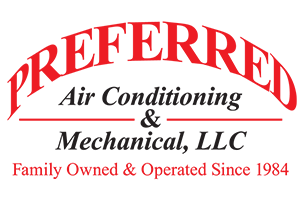Refrigerant – Why You Need it and How it’s Changing
Refrigerant gas is a chemical used in mechanical cooling systems to facilitate the removal of heat, and it is something used in your home or business every day. It was developed for use in enclosed systems such as air conditioners and refrigerators first for industrial use and later for use in small businesses and homes. The earliest gases used for the process of cooling were volatile, toxic and dangerous. Over the past century, scientists have developed newer and safer coolant gases although these substances still have unwanted environmental effects. With more focus on the environment lately, use and safety requirements are changing for refrigerant use. Learn why and how it affects you.
About Refrigerant Gases
Coolant gases have the capacity to draw in heat from the surrounding environment. When used in a mechanical refrigeration system, a source of energy, usually electricity, is used to force the gas to change state. This change in state affects the air surrounding the gas. When done in a controlled environment such as a closed system of tubes and coils, these gases can provide effective climate control. Some of the earliest coolant gases, such as ammonia and methyl chloride, were so toxic that they were banned by the U.S. Environmental Protection Agency (EPA) by the middle of the 20th century.
Refrigerant
The first chlorofluorocarbon gases were synthesized by Frédéric Swarts in the 1890s, for industrial use. A team working for General Motors Company, headed by Thomas Midgley, Jr., worked together with the DuPont company to develop dichlorofluoromethane, the trademark name of which is Refrigerant and the general use name is R-22. This coolant gas was designed for residential and business use because it was determined to be non-explosive and non-toxic. However, scientists have found that it functions as one of several super-greenhouse effect gases. Under the recent Kyoto and Montreal Protocols, the use of R-22 has started to be phased out. In the United States, the R-22 phase-out is administered by the Environmental Protection Agency.
PR-410A
R-410A is a trademark and brand name for the chemical coolant R-410A that was developed in 1991. R-410A is actually a chemical mixture of difluoromethane (also called R-32) and pentafluoroethane (also called R-125). Unlike coolant gases containing bromine or chlorine, this gas only contains fluorine, which does not react in the atmosphere to cause ozone depletion. R-410A was commercialized for use in heat pumps and air conditioners by the Carrier. R-410A has been used in residential HVAC systems since 1996.
The EPA Phase-Out of R-22
The R-22 phase-out in the United States falls under a plan devised through the Montreal Protocol. The Montreal Protocol is an international treaty with the purpose of ending the depletion of the ozone layer. The treaty has been revised seven times, with the most recent revision in 1999. If all the nations who signed the treaty adhere to its requirements, scientists expect that the ozone layer will recover by 2050. A total of 197 countries and the European Union signed the treaty. The implementation of the phase-out is as follows:
- 2003: No production and no importing of HCFC-141b.
- 2004: A 35 percent reduction in consumption of HCFCs like R-22.
- 2010: No production or importing of R-22 for new equipment. R-22 can still be used for existing equipment. The treaty requires a 75 percent reduction in use of R-22 and other HCFCs.
- 2015: No importation of any HCFCs except for use in existing equipment. A 90 percent reduction of consumption of HCFCs including R-22.
- 2020: No production and no importing of R-22. There must be a 99.5 percent reduction in consumption of HCFCs.
- 2030: No importation or production of any HCFCs. A 100 percent reduction of consumption of HCFCs by this time.
How the Phase-Out Affects Home and Business Owners
When a re-charge of coolant is needed, owners of older air conditioners and heat pumps may find that the cost of R-22 is much higher than it used to be. Because a typical central air conditioning system or heat pump uses about six pounds of R-22, a homeowner could have to pay $500 or more for refilling the system. In addition, if a system needs that much of a refill, it is likely that there is a leak somewhere within the compressor, condenser or evaporator, which means that the coolant could leak out again within the next year. Owners might also need to pay a disposal or recycling fee when getting rid of existing equipment that utilizes R-22, due to the hazardous nature of the chemical.
At Preferred Air Conditioning & Mechanical, LLC, we do still offer air conditioning services for existing equipment that still uses Refrigerant (R-22). We also offer replacement and installation services for home and business owners who want to upgrade new and efficient system that utilizes the environmentally-friendly R-410A. For more information about how the R-22 phase out affects your home or business, feel free to give our experts a call at any time.
You May Also Like

Beat the Chill With a Lower Heating Bill in Vero Beach, FL
While our Florida chill might not compare to northern freezes, the recent cold fronts have homeowners reaching for their thermostats with increasing… Continue Reading Beat the Chill With a Lower Heating Bill in Vero Beach, FL…

Yes, You Must Schedule Heating Maintenance in Fort Pierce, FL
The salty ocean breeze that makes Fort Pierce, FL, living so appealing carries an invisible threat to your heating system. December’s mild… Continue Reading Yes, You Must Schedule Heating Maintenance in Fort Pierce, FL…

Help! I Need a New HVAC Installation for My Commercial Property
The morning air in Boca Raton, FL, feels heavier than usual, carrying that familiar coastal humidity that clings to everything. Inside your… Continue Reading Help! I Need a New HVAC Installation for My Commercial Property…
